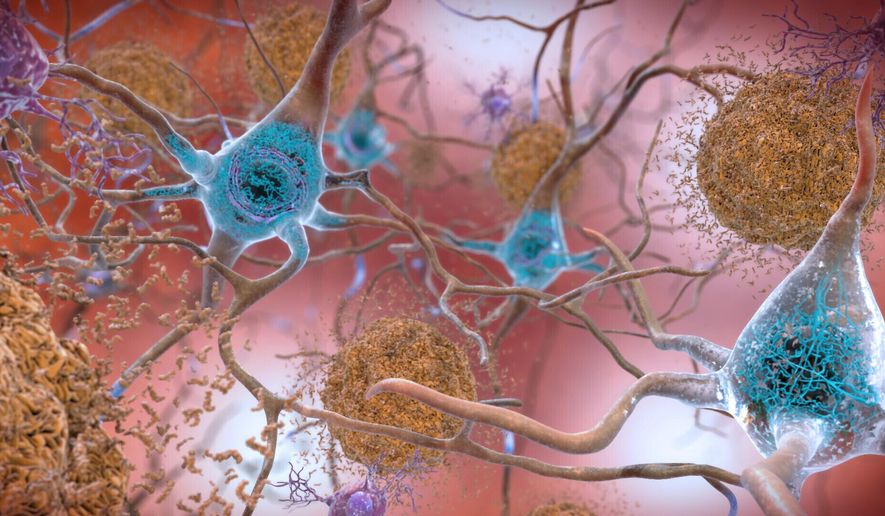OPINION:
Congress is facing a difficult proposition in balancing the push by conservatives for spending restraint while fully funding national security. One priority that should be protected by House and Senate Republicans is maintaining robust funding for the National Institutes of Health. As we saw in the COVID-19 pandemic, health-related threats cost lives and the economy trillions of dollars, and they continue to negatively affect our children.
Increased NIH funding is a national security issue, an economic need, and a policy that then-President Donald Trump supported in the development of Operation Warp Speed.
Today, China is investing hundreds of billions to surge ahead of American companies in the field of biomedical research. This is a national security concern because China has become our primary challenger and a major threat to U.S. efforts for a stable global political environment. China is purposely crowding out American corporations with inexpensive and substandard products to atrophy our domestic production and create a dependence. If Americans become dependent on China for drugs and other pharmaceutical products to meet and serve our medical needs, they control the supply chain and could potentially disrupt it at any time for any reason that serves their purpose.
As an economic issue, it makes sense for our nation to retain the reputation as the world leader in research and development of new drugs. China, on the other hand, is notorious for stealing intellectual property and copying American-made products — such as drugs. According to the National Science Board, “China and the U.S. account for half of public and private sector global research and development spending,” including $656 billion by the U.S. and $526 billion by China, according to 2019 data. According to Michael Nietzel, writing in Forbes, China is investing heavily in intellectual capital and in 2019 “awarded nearly 50,000 such degrees against the US total of nearly 34,000.”
Even with all this investment, China still steals what it can’t develop on its own and has targeted intellectual property produced by Pfizer and Merck, among others.
This should not be a partisan issue. Mr. Trump was a leader in developing vaccines under his mandate to the private sector participating in Operation Warp Speed. He said of the effort on Dec. 8, 2020, “From the instant the coronavirus invaded our shores, we raced into action to develop a safe and effective vaccine at breakneck speed.” He pointed out that “it would normally take five years, six years, seven years, or even more,” yet the Trump administration “harnessed the full power of government, the genius of American scientists, and the might of American industry to save millions and millions of lives all over the world.”
House Republicans have the power to get appropriate elevated levels of funding to NIH. House Budget Committee Chair Jodey Arrington and Appropriations Chair Kay Granger, both of Texas, and Labor, Health and Human Services Appropriations Subcommittee Chair Robert Aderholt of Alabama are keys to elevated funding to prevent the next pandemic. Jed Manocherian of Act for NIH argued in a newsletter called The Cancer Letter that the NIH budget should be doubled over the next 10 years and pointed to Republican Tom Cole of Oklahoma as a leader on the issue of boosting NIH funding. Republicans from Mr. Trump to the current leaders in the House have all exhibited support for the idea of bulking up our health care defense infrastructure.
Americans are fighting chronic illnesses like Alzheimer’s disease and cancer at a high rate, making the boost in funding necessary for a strong reason other than national security. The NIH continues to work to answer the challenge with massive increases in spending on research for Alzheimer’s, passed with strong Republican support, as well as research to help reduce mortality rates for cancer. The NIH has done a great job over the years, and it is time to put the NIH on firm financial ground to do the work necessary to keep America healthy.
Conservatives have rightly pushed hard to find spending cuts as the U.S. faces a future with an unsustainable debt burden. Yet they should not target programs that affect national security to find those savings. One of the core functions of government is to “provide for the common defense” and to protect Americans against foreign threats. China is clearly a foreign threat, and increased NIH funding will help to secure the economic and national security of all Americans.
• Peter Mihalick is former legislative director and counsel to former Reps. Barbara Comstock, Virginia Republican, and Rodney Blum, Iowa Republican.




Please read our comment policy before commenting.